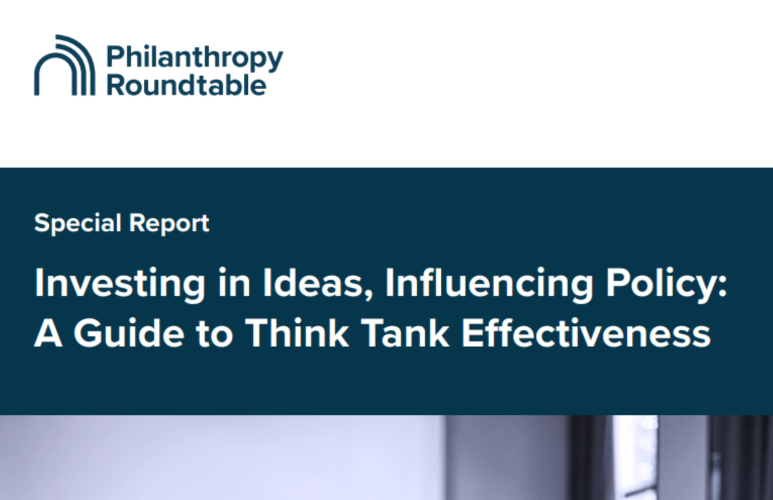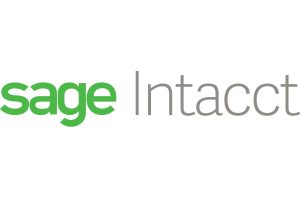Think tanks are known for their research functions, but their public information and policy change roles are equally vital parts of their operations. Because think tanks often influence public policy – for nonprofits and commercial entities – funders often seek to invest in them.
Investing in Ideas, Influencing Policy: A Guide to Think Tank Effectiveness, a new report from Washington, D.C.-based Philanthropy Roundtable, aims to help funders direct their support toward think tanks that offer maximum impact on the funders’ areas of concern.
The report primarily focuses on think tanks it labels “autonomous and independent” — those which are not beholden from any single interest group or donor, and which have similar revenue and operational autonomy from any government entity. These independent think tanks also focus on solutions (e.g. how to reduce crime), rather than merely analyzing or quantifying whatever research questions they are exploring (e.g. quantifying the extent of crime).
A factor that might make such a think tank attractive to funders would be whichever question the think tank explores. As report author Howard Husock, senior fellow, domestic policy studies at the American Enterprise Institute think tank wrote, “[T]he key to what would be an important finding that would lead to substantial policy impact relied fundamentally on asking an original, conversation-changing question.”
The research function is only one factor in determining a think tank’s efficacy. Influential think tanks need to maintain a robust communications arm which uses a wide spectrum of media outlets (print, broadcast, social media, podcasts and whatever else is best suited to reaching those its leaders wish to influence) to promote new and previously published yet newly relevant research through communicators who present well in the various mediums.
Top-level think tanks are also proactive in anticipating when their messages will be well received. Catalysts that might impact the relevancy of a think tank’s output include changes in political administrations, shifts in social or geopolitical conditions or even issues raised by popular culture. Ideally, previously published research can be revisited or represented as the cyclical nature of these conditions presents itself: as Husock writes, “Think tank research can be seen as having an extended ‘half-life,’ in which its influence continues to resonate over time. Another way of thinking about this is to imagine think tanks building up a portfolio of research they can pull from when the relevant time comes up again. For example, farm bill research that can be rehashed every five years when farm bill legislation is renewed.”
All this said, a think tank oriented toward effecting change must do more than conduct and present research, according to Husock. A major part of its operations should focus on engaging allies and building coalitions toward achieving the solutions presented in its research.
Husock does offer a caveat regarding lobbying activities. When think tank research is used in influencing policy, the positions presented should be represented as those of the research’s author, and not the think tank itself. “As a rule, independent think tanks do not take formal policy positions as an organization, in part because of restrictions, in the United States at least, on lobbying on the part of nonprofit tax-exempt organizations,” Husock wrote.
A full copy of the report is available here: https://www.philanthropyroundtable.org/philanthropy-roundtable-releases-special-report-on-think-tanks/












